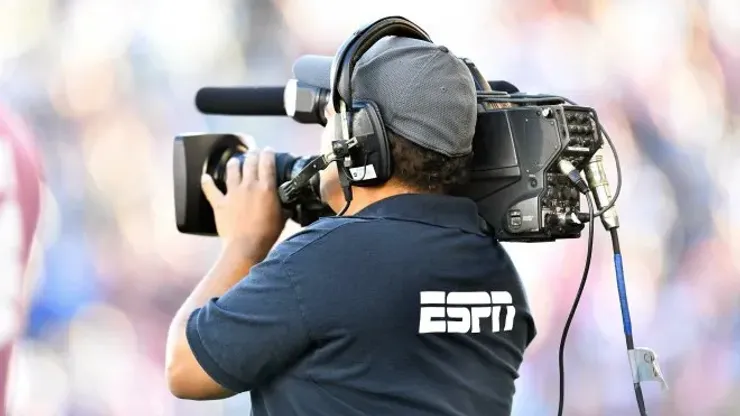
Major League Soccer (MLS) has learned the lesson every other American professional and college sports league does — that despite discussion of parity and competitiveness, the real selling point of a league on TV is having elite clubs. Elite clubs could be those that excel on the pitch or perhaps those with the greatest atmospherics around it.
But for years, MLS has languished with its television profile while trying to push big market teams and the idea of high quality of play on an increasingly sophisticated audience of American soccer fans. MLS is never going to overtake the other viewing options on English-language American TV based on quality or history. As the availability of top European leagues has grown on American television, MLS’ ratings have not grown at the rate they should given league expansion and the growing interest in the sport domestically. While soccer as a whole has become more mainstream, MLS continues to be a niche league with a niche audience. Therefore, MLS pushing clubs with strong local followings and the best ambiance that reflects on TV is a new and potentially highly successful strategy.
This year’s MLS TV schedule for English-language US broadcast partners ESPN and FOX reflects an acceptance that the league is developing “super clubs” even if it is based on attendance and local support/relevance over that of quality on the pitch. For years, TV market size and the potential to break into the world of “big leagues” with the US sports media drove MLS’ TV strategy – an emphasis on showing clubs in big media markets over those in smaller ones.
The acceptance of super clubs is something MLS has been reluctant to do in its twenty-plus year history as parity and competitiveness have been the selling points of the league. Caps on spending and player salaries have prevented clubs from racing far out ahead of others based on economics. However, with the release of the 2017 MLS national TV schedule, a clear shift is occurring in the thinking of the league. Clubs whose stadium reflect a better atmosphere on television and whose fans are so committed in large numbers that they’re sure to watch an away telecast are today getting preference for national television over larger markets where the supporters base is shallow and local interest beyond hardcore fans, tepid.
Seattle, Portland, Kansas City and Orlando stand out with the types of atmosphere and local interest the clubs have created when compared to most larger market MLS sides. In the past, MLS focused on more successful teams on the field or larger market clubs when filling out a TV schedule. But despite having the league’s best record last season and also winning the 2016 Lamar Hunt US Open Cup, FC Dallas is on national English-language television just twice in 2017. This can be contrasted with Portland who makes 13 appearances despite finishing far below Dallas in the table. Portland is the 24th largest TV market in the country while Dallas/Fort Worth is the 4th largest media market according to Nielsen.
SEE MORE: Schedule of MLS games on US TV and streaming in 2017
With the TV market rankings identified in parenthesis, it’s important to note that Seattle (14), Orlando (19) and Kansas City (33) along with Portland (24) will make a total of 43 English-language national television appearances. Dallas (4), New England (8), DC United (7) and Chicago (3) make a total of six combined national television appearances. DC United and Chicago each make a solo appearance – the league minimum.
Major League Soccer, nor any soccer product on American soil, will offer the high level of play that is on display in the top European leagues. Easy access to matches from Europe on English-language television has made it difficult for MLS to compete as a TV product. While those around the league are unlikely to ever admit it, MLS now is retooling its product to focus on the types of cool, hip atmospheres that not only attract a TV audience but will grow the appeal of the league among millennials.
The atmospheres on display in some of the big market venues such as Chicago’s Toyota Park or Washington DC’s RFK Stadium are reminiscent of the MLS 1.0 days when smallish cheering sections seemed to be drowned out by the TV production. The contrast with the likes of Kansas City, Orlando, Seattle and Portland are stark – the later set of markets have embraced MLS and a supporters culture that shows well on television.
As MLS evolves and attempts to improve the league’s sagging television profile, the types of stadiums that have a mood that reflect well on television will continue to be featured more and more as will the clubs who regardless of market size have a sizable following sure to tune in to watch an away match.
200+ Channels With Sports & News
- Starting price: $33/mo. for fubo Latino Package
- Watch Premier League, Liga MX & Copa Libertadores
The New Home of MLS
- Price: $14.99/mo. for MLS Season Pass
- Watch every MLS game including playoffs & Leagues Cup
Many Sports & ESPN Originals
- Price: $10.99/mo. (or get ESPN+, Hulu & Disney+ for $14.99/mo.)
- Features Bundesliga, LaLiga, NWSL, & USL
2,000+ soccer games per year
- Price: $7.99/mo
- Features Champions League, Serie A, Europa League & EFL
175 Premier League Games & PL TV
- Starting price: $7.99/mo. for Peacock Premium
- Watch 175 exclusive EPL games per season